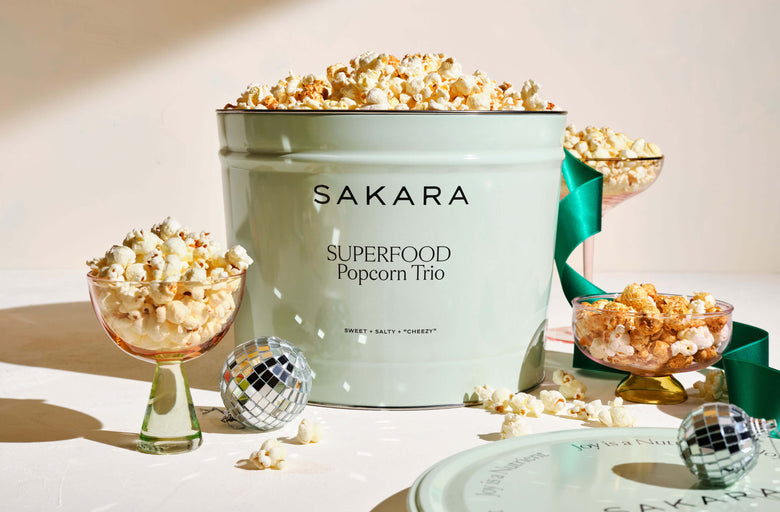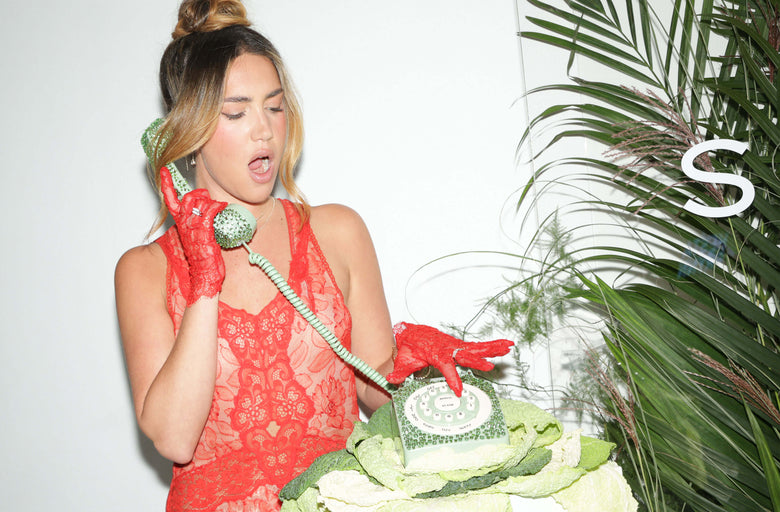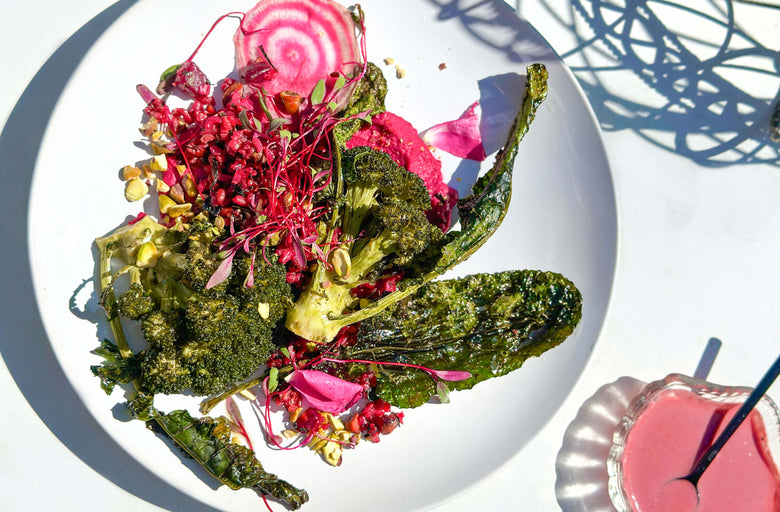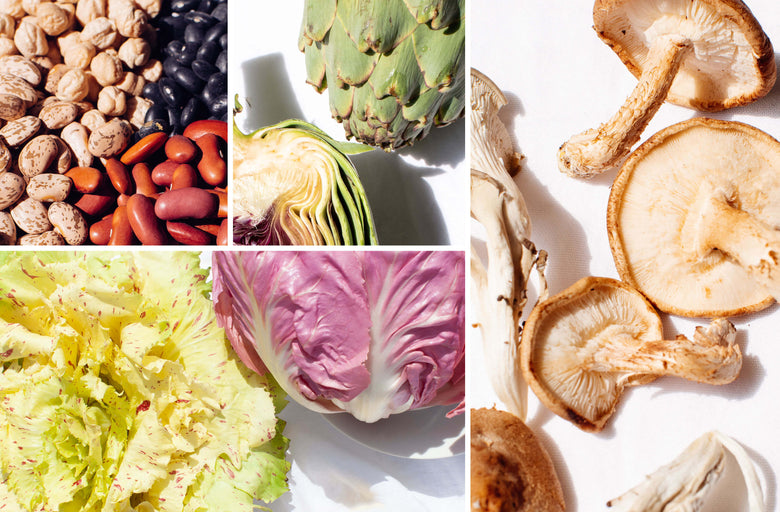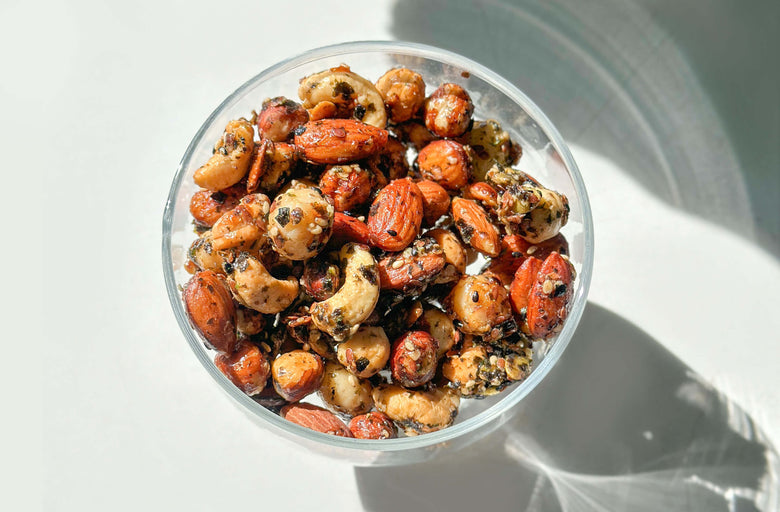Just one day of Dr. Aviva Romm wasn't enough for us (or for you), and her nuggets of wisdom were too much to confine to one page. Read below for more 411 on what every woman and their child should know about their bodies for optimal health and wellbeing.
Where do you stand on birth control?
Here’s the thing: the pill is really convenient and I don’t want to disparage decades of work that women did to make it — it used to be illegal to even send birth control information through the mail and women went to jail for that. But at the same time, women who take the pill really need to understand how it affects their hormones in a really big way. It can take women anywhere from six months to two years to get their cycles regular after going off the pill, even if they’ve been on it for just a year.
It affects your blood sugar in a very serious way. Basically, it creates a situation in your body that’s mimicking pregnancy. You’re getting an equivalent of an enormous influx of hormones into your body and those hormones jack up your blood sugar so they can actually make you insulin resistant. This can also affect your skin: many women's skin clears up on it, but some women actually find that it negatively impacts their skin. BC can also affect and disrupt your gut microbiome, especially because you’ve suddenly got this high blood sugar all the time, and it can affect your circulatory system, so it does increase your risk of clots, especially the high-estrogen ones.
In my opinion the IUD is the best option other than what’s called Natural Family Planning, where you do a Rhythm Method (which has a 97% success rate!). We do have a lot of old stories about IUDs from the Dalkon Shield in the 70s, but they’re super safe. They’re the most used birth control in the world. I’ve put in tons of them, but I’ve also taken out tons of them because the problem is that women get so much cramping and spotting.
What are your thoughts about having sex while you're menstruating?
If it’s comfortable for you and you want to, then sure! There’s no medical reason not to. In some yogic traditions, they would say not to because of the same reason you wouldn’t do headstands — you don’t want anything causing back flow. But if you have no menstrual problems or gynecologic problems and you like it, then why not?
Also, when women are on their cycles, especially when they have a lot of pelvic pressure, having sex can be really relieving because you’re moving your pelvis around. It’s almost like an internal massage. For some women, it’s great and they love it, but it’s totally a personal choice.
What do you typically do for someone who is prone to yeast infections or bacterial vaginosis?
The most important thing is getting your gut flora together because your gut flora will dictate your vaginal flora to a pretty big extent. Making sure to get as much sugar — that includes alcohol — out of your diet is hard, but that's what's making things worse. Alcohol is really just sugar and yeast - who needs that? Then, a probiotic is needed. You want one that has L. rhamnosus and L. reuteri. Those are two amazing species.
It’s also important to look at other issues. Has there been abuse? How is their relationship? All of these things affect stress and our gut flora. It can affect our vaginal flora, too. So they have to be thinking about what the other emotional impacts are that affect the gut flora. Diet definitely plays a role, too.
Are there any health implications of having an irregular period?
In general, if somebody doesn’t have a regular period, such as if they’re skipping three or six months at a time because they have PCOS, that can cause health problems. I haven’t heard of any health problems from women who have irregular periods after they go off the pill, but it’s often women going off because they want to get pregnant and then they’re dealing with sometimes months, or a year and a half, of infertility because they can’t get their cycle regular.
Whenever your cycle is irregular, it’s affecting other things. We know estrogen and progesterone have an impact on our cognitive function, as well as our hearts and bones, so if that’s out of whack, it’s going to have other impacts. But I don’t think it’s anything that women need to worry about when they’re on the pill. They just need to start to work on making their own rhythms as regular as possible. There’s a great herb called Vitex — aka, Chaste Berry — that can also help with women who are trying to regulate their cycle after their periods, too.
If a woman is not looking to get pregnant right now, but eventually would like to, how should she prepare her body?
It’s pretty easy for a lot of people to get pregnant, but to really optimize your baby’s health and to optimize your own health while you’re pregnant and after, I really encourage women to spend about six months at least before they get pregnant to treating themselves special.
For women who have fertility problems, I often advise heavy metals testing because we know that some of these metals are passed down to the baby. I have them do not what I would call a full on detox, but I have them live a little bit more of the detox lifestyle than the average woman would. If you have medical problems, then you definitely want to engage in a full-on detox, but you don’t want to do that within the three months before you get pregnant, ideally, because then if you’re liberating all these toxins and then get pregnant, then you can still pass them on to the baby. That’s why I say six months. Do it for three months and then have a really healthy living time, then try to get pregnant.
When it comes to foods for fertility, it’s just about having an optimal nutritional diet. You want to make sure you’re getting a really good array of all phytonutrients, all your plant nutrients, antioxidants, lots of greens, lots of rainbows vegetables, and eating organic as much as possible so that you’re not getting pesticides, herbicides, and antibiotics.
Then what we do know, is that women who have more inflammation have a harder time getting pregnant. The diet that has been shown to be most likely to help women get pregnant is a sort-of Mediterranean-style diet, which is lots of fruits and vegetables. If you have trouble with sugar, aim for less fruit and more vegetables, small amounts of grains, a good quality plant-based protein, nuts and seeds and a really good quality oil.
I usually recommend women also add in an essential fatty acids because we know that most babies are deficient and you get it from the mom when you’re pregnant. Plus a probiotic because we know that a mom’s flora during pregnancy not only can prevent the baby from being premature, but we can help the baby with allergies and asthma and eczema after. I have women start all this stuff before they get pregnant.
I also make sure that their thyroid is normal. That’s a really big one because so many women have undiagnosed thyroid problems that can affect them whether they’re trying to get pregnant or not. It can also increase their risk of miscarriage, pregnancy problems, and problems for the baby and postpartum depression.
Do you have any advice or any tricks for women as they get older and their metabolism is slowing down?
Getting older doesn’t mean that your metabolism has to slow down! I’m 50 and I haven’t gained any weight because my metabolism hasn’t slowed down. We have to be mindful about how we use our energy. Don’t just squander your energy — keep yourself replenished. I think the main thing as we get older isn't so much about metabolism as it is oxidative stress. Oxidative stress is the damage that inflammation causes in your cells. There’s actually a term called brain flammaging and another term called inflammaging and it shows how oxidative damage causes us to age prematurely.
If you’re doing all the things that you can to keep your inflammation down - like if you’re getting really good antioxidants from your food with a really wide variety of greens, rainbow vegetables, and you’re taking care of yourself - then you don’t even have to get that much exercise, but just keep yourself moving and practice mindfulness to keep that stress down.
We should all age beautifully and wonderfully without dementia and even without wrinkles. Obviously, we want to get older and we’re not going to stay 24 forever, but I think that we have this image of age that’s like someone in the Southwest who never wears sunscreen — it doesn’t have to be that way.
Are there supplements that you recommend every woman take?
I just recently started recommending supplements for women every day. I used to feel like we could get everything we need from our food, but what I’m seeing in terms of the damage from our environment and the toxins we’re exposed to do, is that they're causing us to be deficient, so I feel that we do need a little extra every day.
In general, I think that fish oil, vitamin D, a multivitamin and magnesium are the big guns. But here’s the thing — I don’t think that everyone needs to be taking them every day. Just take them most of the time, like three to five days a week whenever you think about it.
What is your advice for women who are having hot flashes?
A lot of people notice that their hot flashes are worse when they’re stressed out, so I advocate learning some breathing exercises that women can start to feel. I haven’t had them yet so I don’t know, but most women start to feel benefits from the breathing right away.
Some of the triggers that women have are from being overdressed, so it’s about learning to dress in layers. It’s super practical and easy to do. And wearing only natural fibers helps, because synthetic fabrics hold the heat in more. I recommend that we all just wear natural fibers anyway.
Low blood sugar is also a really big trigger. If your blood sugar is low, that triggers your body to go into the stress response. Keeping your blood sugar really steady is key.
There are a few herbs that are really nice that women can use — there’s one called Chinese rhubarb. Black cohosh has also been shown to be helpful for hot flashes and Vitex is great. There are a couple of others, such as sage and hops, that are great but they’re also a little bit estrogenic, so for women who have a history of high risk for breast cancer, hops is too estrogen positive.
Maca is another one that I love for premenopausal women. Technically, it’s even safe while you’re pregnant, but I don’t usually recommend it during pregnancy, but for women who are hot-flashing, making a smoothie with a tablespoon or two of maca, antioxidant-rich berries, a little bit of vegan protein powder and then some fish oil, they’ve got an amazing medicinal shake.
For women who are concerned about excess estrogen, what are some things that they can do to balance it?
One thing would be to not drink or eat out of plastic because we are getting a lot of environmental estrogen. It comes from our plastics and from herbicides and pesticides, so as much as you can, go organic or follow the Environmental Working Group’s Clean 15 or Dirty Dozen. Then, we also know that dairy products are going to store most of the environmental estrogen triggers. If you’re going to have dairy, go organic, but even organic dairy can still hold those environmental hormones.
Then, that’s where you really want to make sure you’re having a bowel movement every day because when you break down estrogen, you eliminate through your gut and poop. If you don’t, you recycle it through your liver then the kind that you recycle is partially broken down by your liver already and it’s way more toxic, so you want to get what your liver has broken down — get it out of your gut through your stool.
That’s where we’re making sure you’re either using supplements to help you poop, or you’re using magnesium and a probiotic. Then, the liver is really important because the liver is breaking down that environmental estrogen. It’s important to have really effective liver support, whether that’s botanical or through nutritional supplements.
All the supplements I’ve mentioned, especially a multivitamin, has all the B-complex and magnesium needed for liver detoxification. Then, if you need an extra bump up, any bitters products are great. It’s bitters that support the liver and they have antioxidants and vitamin C, resveratrol, pycnogenol, and N-acetyl-L-cysteine (NAC) which is really big one for supporting liver detoxification if your estrogen is higher.
Also, broccoli, cauliflower, cabbage, kale, and anything in that brassica family are all critical because they help the liver break down estrogen. They provide phytochemicals that the liver needs to support detoxification. They provide the fiber you need for having healthy bowl movements, but they also provide really good fiber that feeds healthy gut flora — so lots of greens twice a day every day. That is super important for everyone.
How many days before you don't poop do you think you should take something to help you go?
It depends on the circumstances. What’s normal is to be pooping one to two times a day. But if that isn’t happening, I wouldn’t go more than one day. If you do skip a day, I would try to figure out what’s going on, but not do anything just yet. Think about it: are you eating enough fiber? Are you getting enough fluids? Are you adding in a probiotic? Should you take some magnesium citrate before bed?
I wouldn’t skip more than two days. If you’re skipping more than one day once a week, then something’s going on and you’ve got to figure it out.

